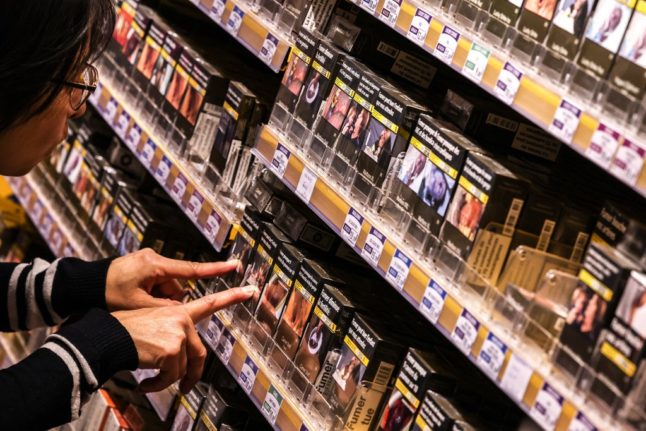More than three in 10 people in France aged between 18 and 75 admit to smoking ‘occasionally’ and a quarter smoke daily, government health body Santé Publique France said in a recent report.
France was home to more than 12 million daily smokers last year puffing their way through an average of 12 cigarettes every day, the report – published for World No Tobacco Day – revealed.
Smoking was linked to 75,000 avoidable deaths in France in 2015, or 13 percent of deaths that year.
According to the report, 59.3 percent said they planned to quit in the next six months, and 30.3 percent have tried to stop smoking in the past 12 months.
France comes in 19th on the list of countries with the most smokers, according to the World Health Organisation. The island of Nauru, in Micronesia, has the highest smoking rate, with 48.5 percent of the population lighting up. Burma and Kiribati, an Oceanian archipelago, are second and third with, respectively, 44.1 percent and 40.6 percent of the population smoking.
Meanwhile in Europe, Eurostat has revealed that 19.7 percent of the EU population smokes daily. In 2019, 5.9 percent smoked 20 or more cigarettes on a daily basis, and 12.6 percent smoked fewer than 20.
Its figures showed that 22.2 percent of French people aged 15 and over smoked daily – higher than the European average, but six percentage points lower than the ‘smokiest’ EU country – Bulgaria.
Longstanding EU candidate country Turkey, which is included in Eurostat’s study, was second on the list with 27.3 percent of the over-15 population smoking, ahead of Greece on 27.2 percent.
The countries with the fewest smokers are Sweden (9.3 percent), Iceland (11.2 percent), Finland (12.5 percent), Norway (12.9 percent) and Luxembourg (13.5 percent).
The number of smokers in France has remained steady since 2020, Santé Publique France’s report added, while those who vape is also static at 5.5 percent of the population.
Minister of Health François Braun announced a new national programme to fight against tobacco, which will be launched this year as part of a wider target of achieving a first “tobacco-free generation” by 2032.
This will include schemes “to better prevent the onset of smoking and to support smokers towards quitting, with particular attention to target populations, in particular young people, as well as to the reduction of social inequalities in health linked to tobacco”.



 Please whitelist us to continue reading.
Please whitelist us to continue reading.
Member comments